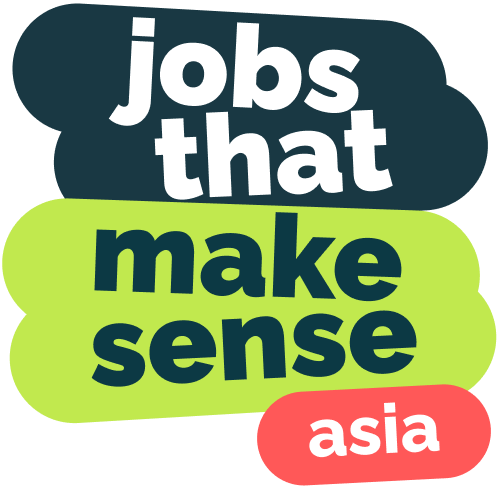Generation Z - How to enter the world of work and feel good about it ?
In early 2023, the BBC published an article noting the widespread anxiety at work among Generation Z. Feeling not truly confident in the workplace, they often describe feeling illegitimate, and frustrated at not being understood by their management or hierarchy. Elisabeth Soulié, an anthropologist who has studied Generation Z extensively and understands its expectations and needs, helped us to decipher intergenerational differences. She gives some advice on how to make the company a less anxiety-provoking environment.

Does your company resonate with Generation Z? If not, here's why.
Their borderless, fluid approach means traditional corporate silos no longer fit. While earlier generations sought individual fulfillment at work, Gen Z prioritizes a collective experience. They find meaning in sharing, camaraderie, and community – aspects an overly individualized talent assessment system might miss. Additionally, while previous generations embraced reason and logic, shaped by figures like Descartes, Gen Z lives in a world filtered through smartphones, fostering a more sensory and emotional connection. Therefore, adaptation involves fostering intergenerational dialogue, not just one-way changes.
Comparing Gen Z and Gen Y in the workplace: wellbeing is key.
Gen Z prioritizes well-being – they won't hesitate to leave a company that doesn't align with their values. In contrast, Gen Y values empowerment, autonomy, and individual success, leaning less towards collaboration. Pablo Servigne's "Other Law of the Jungle" highlights this shift – from "power over others, ambition, and selfishness" to "many are stronger than one." Recognizing the importance of collaboration, Gen Z seeks a sense of belonging and team wellbeing in their workplace. Additionally, they value care, listening, empathy, and mutual support, which contrasts with the traditional "patriarchal society" emphasis on dominance and self-serving behaviors. Essentially, their values are aligned with collaboration and compassion, often described as "feminine" qualities.
Why is youth mental health at risk?
Gen Z's mental health is influenced by both work and personal life. Several key factors contribute to their struggles:
Firstly, it has to do with her relationship with digital technology. The Fear Of Missing Out, FOMO, fuels constant connectivity where she doesn't want to miss a thing. It creates a pressure to present a perfect online persona, often leading to feelings of inadequacy and isolation
Secondly, the fact of living in the present moment, of questioning everything, of constantly being able to change, to branch off... creates a kind of existential anxiety. Being able to re-evaluate everything, even who I am, all the time, has a very positive side, but it also creates anxiety;
And finally, there's the eco-anxiety shared by a large part of this generation;
What advice would you give to Gen Z to help them gain self-confidence in the workplace?
Gen Z can sometimes feel more lost than insecure. But maybe, paradoxically, it's because they have more self-confidence than previous generations. They need to make sense of what they're living and doing now, not in ten years, so they question themselves a lot. This can be challenging, but remember, lack of self-confidence is often solved by action, and this is a generation that acts, or at least believes in the power of action.
Of course, not everyone in Gen Z acts. The future, the world itself, can be anxiety-provoking, fast-moving, and uncertain. So, here's some advice for not getting too bogged down: to act in the present moment and in your ecosystem, and to connect with others inside and outside the company.
Based on your observations, what advice would you give Generation Z before joining a company to help them feel at ease?
I believe during a job interview, Generation Z should proactively communicate their expectations, not necessarily as demands. Setting expectations involves articulating their needs ("I need...") and posing specific questions: "How will we collaborate? What would daily interactions with my manager look like? How is feedback provided?"
How can the younger generation establish a constructive dialogue with their superiors today?
In my lectures, I observe a striking lack of mutual understanding between Generation Z and their superiors. This communication gap creates friction in the workplace. While Gen Z prioritizes open dialogue and expressing needs, older generations may not be accustomed to such emotional transparency.
Very often, when Generation Z doesn't feel good, it prefers to leave. They'll look elsewhere for another path, another ecosystem. And yet, being able to discuss emotions is one of the best ways of coping with these gaps and readjusting to reality. This isn't easy, as the previous generation wasn't always used to talking about their emotions. Perhaps it's precisely the role of Generation Z to familiarize the older generation with this.
5 takeaways
1# Are you between 17 and 26 years old and don't understand your superiors at work? They sometimes have trouble understanding you too, but you can do something about it ;)
2# Initiate a dialogue with your superiors. Don't wait for the half-year interview!
3# Dare to talk about your feelings and emotions in relation to your job, your mission, the company.
4# Before applying, define your expectations. They'll help you ask your questions in the interview and find out if the job, the management and everything else really suits you.
5# If you're lost, talk about it both inside and outside the company, create a bond, surround yourself! :)

